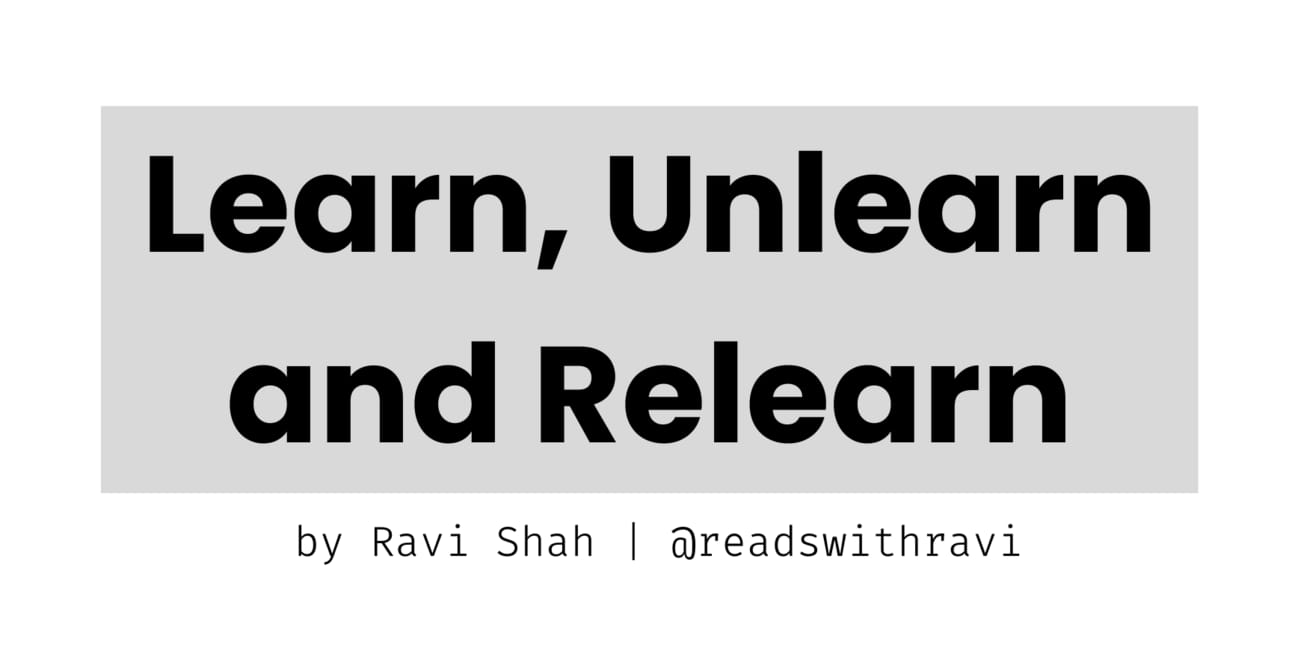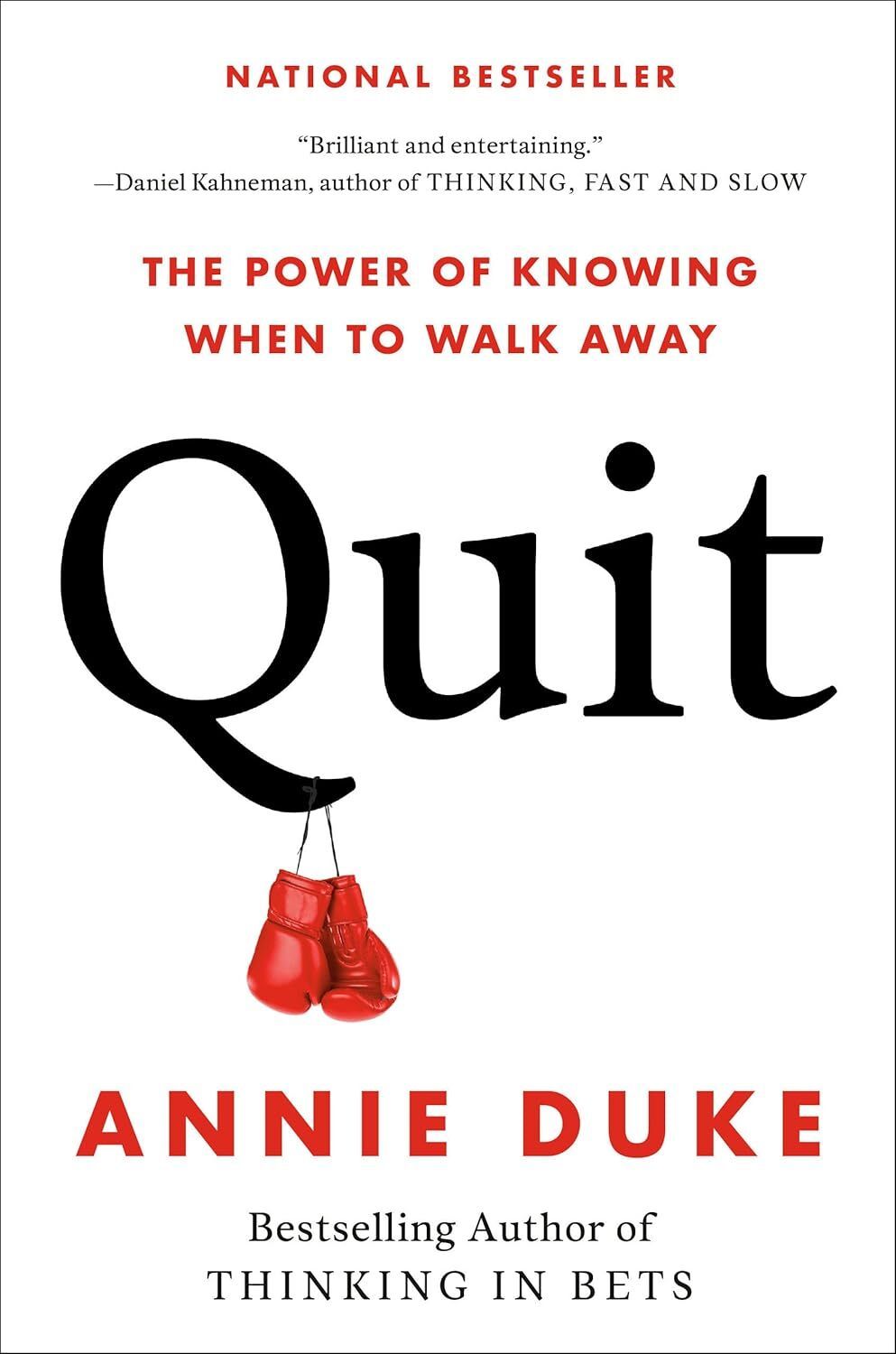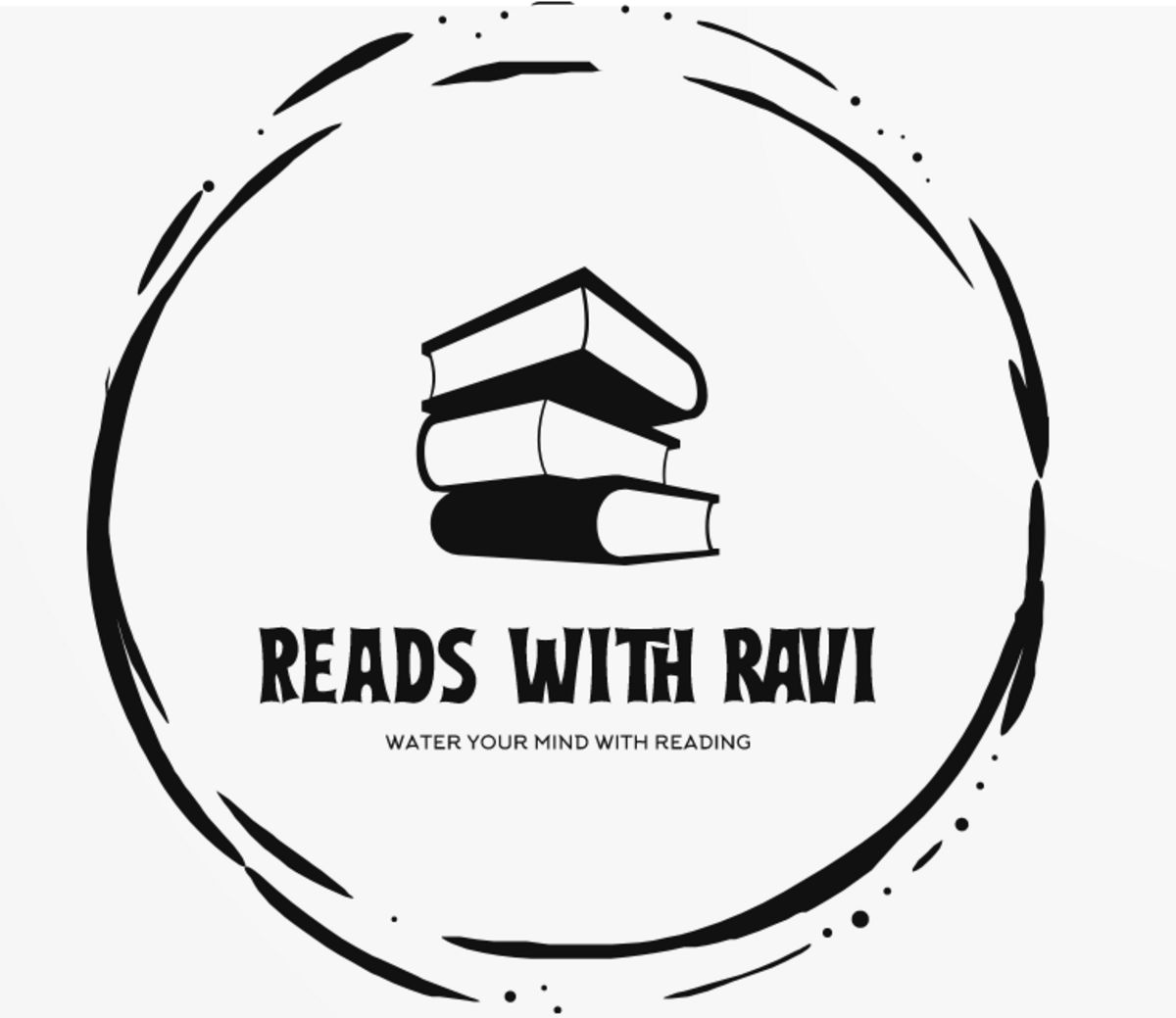
Happy Thursday folks!
Here is my favorite passage of the week, two quotes and book of the week with two important lessons to ponder on:
Passage of the Week:
Author and Speaker Jenny Wood on studying our rival with intense curiosity:

From Wild Courage by Jenny Wood
Two Quotes:
“Small disciplines repeated with consistency every day lead to great achievements gained slowly over time.”
“The happiness of your life depends upon the quality of your thoughts.”
Book of the Week with 2 Important Lessons:
The book of the week is Quit: The Power of Knowing When to Walk Away by Annie Duke.

An engrossing, useful and important read. In this book, Annie Duke draws on thoughtful examples, behavioral science, and keen-eyed analysis to explain why good quitting skills are integral to success in any part of life.
In this book she explains how quitting on time often feels like quitting too early; why it’s so hard to walk away when that means not knowing how things will turn out; how to identify when it’s best to persevere, or pivot; and strategies for enlisting others to help you call it quits. You will learn to recognize why quitting should be celebrated and how it can become a skill you can develop and use to enrich your life, encouraging you to value optionality, execute better on the things you stick with, and continue exploring so you can flexibly change with (or in advance of a changing world).
This book is recommended by Daniel Kahneman, Richard Thaler, Adam Grant, Seth Godin, Ryan Holiday and many others.
Here are two important lessons from the book:
1) Quit While You Still Have a Choice:
Quitting on time will usually feel like quitting too early. It shouldn’t be surprising that making good decisions about quitting requires mental time travel since the worst time to make a decision is when you’re in it. That’s when you are in the present, facing down the decision whether or not to cut your losses, unable to see past what is happening right now. If we don’t cut our losses when it’s warranted, those losses will continue to accumulate.
This exposes a common misconception about quitting. We are reluctant to walk away when we should because we have the feeling that doing so will slow our progress or stop it altogether. But it is the reverse that is actually true.
If you stick to a path that is no longer worth pursuing, whether it’s a relationship that isn’t going well, or a stock that you’re invested in that’s losing money, or an employee that you’ve hired who isn’t performing, that is when you lose ground.
By not quitting, you are missing out on the opportunity to switch something that will create more progress toward your goals. Anytime you stay mired in a losing endeavor, that is when you are slowing your progress. Anytime you stick to something when there are better opportunities out there, that is when you are slowing your progress. Contrary to popular belief, quitting will get you to where you want to go faster.
2) Kill Criteria with States and Dates:
When you enter into a course of action, create a set of kill criteria. This is a list of signals you might see in the future that would tell you it’s time to quit. It will help you inoculate you against bad decision-making when you’re “in it” by limiting the number of decisions you’ll have to make once you’re already in the gains or in the losses.
The best quitting criteria combine two things: a state and a date. A state is just what it sounds like, an objective, measurable condition you or your project is in, a benchmark that you have hit or missed. A date is the when.
“If by (date), I have/haven’t (reached a particular state), I’ll quit.”
For example, if your goal is to be an Olympic sprinter, figure out how fast the best runners in the world were running the 100-meter dash at fifteen years old, or eighteen years old, or as college sprinters. You can mark those milestones along the way and if you’re hitting them, keep going (as long as the pursuit still brings you happiness), and if you miss them, quit and pursue a new goal. This way, you can spend more of your time on the things that are worth pursuing.
Books I am currently reading:
The Wealth Ladder by Nick Maggiulli. From the author of Just Keep Buying, a groundbreaking new framework for building wealth. The framework in this book will improve not just how we manage our money but how we make decisions about what truly matters. The book releases on July 22, 2025. Pre-order your copy anywhere books are sold.
After the North Pole: A Story of Survival, Mythmaking, and Melting Ice by Erling Kagge. The Norwegian explorer, philosopher and acclaimed writer tells of his historic 58-day journey to the North Pole on skis in this provocative memoir that is a profound meditation on nature and the history of explorers' obsession.
READING TIP: Question Whether the Book is Worth Reading
We often consume a lot of things out of habit, without questioning their worth, books included.
Never feel obligated to finish a book that doesn’t interest you. There are many great books out there to read. Read what you are interested in, or ignite your curiosity, or help develop the skills you want to cultivate.
Thank you for reading and all your support.
I am excited to keep bringing you the new and old books, great insights, and lessons.
Until next week, stay curious and happy reading!
— Ravi Shah | @readswithravi

